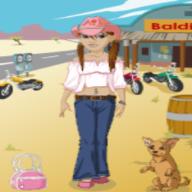有咩adj都help我寫出來
寫得最多有最佳解答
有咩adj
2008-10-12 8:07 pm
回答 (4)
2008-10-12 8:23 pm
✔ 最佳答案
helpful beautiful handsome good bad tall short cheap expensive high low fast slow big small clean dirty wide broad narrow deep shallow full empty fail
light dark heavy cold cool hot smooth rough new old young soft hard thin
fat thick stong weak wet dry happy painful nervou shy tired angry sad
jealous proud suspicious embarrassed ashamed plump curly bald
straight pass
參考: me
2008-10-12 8:29 pm
old young poor rich wealthy big biggest bigger small smaller smallest teenage
exciting boring interesting happy sad bored excited interested hard long longer
longest short shorter shortest loud rude alone louder loudest careful helpful
careless helpless fast faster fastest slow slower slowest scare cheerful quick
younger youngest older oldest elder
exciting boring interesting happy sad bored excited interested hard long longer
longest short shorter shortest loud rude alone louder loudest careful helpful
careless helpless fast faster fastest slow slower slowest scare cheerful quick
younger youngest older oldest elder
參考: me
2008-10-12 8:28 pm
big, small,beautiful, nice, good, bad, long, short, wide, black, grim, heavy, light, dark, little, huge, grand, amazing, expensive, dear, cheap, chic, precious, colourful,creative, boring,tedious, lonely......
words of colours----red ,green ,blue, violet, blonde.....
words of colours----red ,green ,blue, violet, blonde.....
2008-10-12 8:18 pm
In grammar, an adjective is a word whose main syntactic role is to modify a noun or pronoun, giving more information about the noun or pronoun's referent. Some examples can be seen in the box to the right. Collectively, adjectives form one of the traditional eight parts of speech, though linguists today distinguish adjectives from words such as determiners that also used to be considered adjectives.
Not all languages have adjectives, but most, including English, do. (English adjectives include big, old, and tired, among many others.) Those that do not typically use words of another part of speech, often verbs, to serve the same semantic function; for example, such a language might have a verb that means "to be big", and would use a construction analogous to "big-being house" to express what English expresses as "big house". Even in languages that do have adjectives, one language's adjective might not be another's; for example, while English uses "to be hungry" (hungry being an adjective), French uses "avoir faim" (literally "to have hunger"), and where Hebrew uses the adjective "זקוק" (zaqūq, roughly "in need of"), English uses the verb "to need".
In most languages with adjectives, they form an open class of words; that is, it is relatively common for new adjectives to be formed via such processes as derivation.
Examples
That is a big building.
I met a very old man.
The quick, brown fox jumps over the lazy dog.
Most monkeys are arboreal creatures that inhabit tropical or subtropical areas.
That's a very nice dress you are wearing
1.Opinion or judgment -- beautiful, ugly, easy, fast, interesting
2.Size -- small, tall, short, big
3.Age -- young, old, new, historic, ancient
4.Shape -- round, square, rectangular
5.Color -- red, black, green, purple
6.Nationality -- French, Asian, American, Canadian, Japanese
7.Material -- wooden, metallic, plastic, glass, paper
8.Purpose or Qualifier -- foldout sofa, fishing boat, racing car
Not all languages have adjectives, but most, including English, do. (English adjectives include big, old, and tired, among many others.) Those that do not typically use words of another part of speech, often verbs, to serve the same semantic function; for example, such a language might have a verb that means "to be big", and would use a construction analogous to "big-being house" to express what English expresses as "big house". Even in languages that do have adjectives, one language's adjective might not be another's; for example, while English uses "to be hungry" (hungry being an adjective), French uses "avoir faim" (literally "to have hunger"), and where Hebrew uses the adjective "זקוק" (zaqūq, roughly "in need of"), English uses the verb "to need".
In most languages with adjectives, they form an open class of words; that is, it is relatively common for new adjectives to be formed via such processes as derivation.
Examples
That is a big building.
I met a very old man.
The quick, brown fox jumps over the lazy dog.
Most monkeys are arboreal creatures that inhabit tropical or subtropical areas.
That's a very nice dress you are wearing
1.Opinion or judgment -- beautiful, ugly, easy, fast, interesting
2.Size -- small, tall, short, big
3.Age -- young, old, new, historic, ancient
4.Shape -- round, square, rectangular
5.Color -- red, black, green, purple
6.Nationality -- French, Asian, American, Canadian, Japanese
7.Material -- wooden, metallic, plastic, glass, paper
8.Purpose or Qualifier -- foldout sofa, fishing boat, racing car
參考: Wikipedia
收錄日期: 2021-04-13 16:09:12
原文連結 [永久失效]:
https://hk.answers.yahoo.com/question/index?qid=20081012000051KK00647


